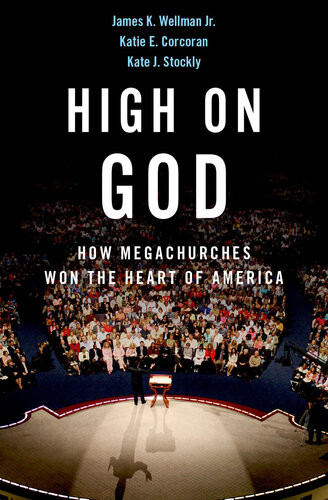

Most ebook files are in PDF format, so you can easily read them using various software such as Foxit Reader or directly on the Google Chrome browser.
Some ebook files are released by publishers in other formats such as .awz, .mobi, .epub, .fb2, etc. You may need to install specific software to read these formats on mobile/PC, such as Calibre.
Please read the tutorial at this link: https://ebookbell.com/faq
We offer FREE conversion to the popular formats you request; however, this may take some time. Therefore, right after payment, please email us, and we will try to provide the service as quickly as possible.
For some exceptional file formats or broken links (if any), please refrain from opening any disputes. Instead, email us first, and we will try to assist within a maximum of 6 hours.
EbookBell Team

4.3
68 reviews"God is like a drug, a high, [I] can't wait for the next hit." This direct quote from a megachurch member speaking about his experience of God might be dismissed as some sort of spiritually-induced drug riff. However, according to the research in this book, it was not only sincere, but a deeply felt, and sought-after sensibility. Megachurch attendees desire this first-hand experience of God, and many report finding it in their congregations. The book focuses on the emotional, social and religious dynamics that pull thousands of people into megachurches and how those churches make some feel like they are "high on God" and can't wait to get their next spiritual "hit." High on God gives the first robust and plausible explanation for why megachurches have conquered the churchgoing market of America. Without condescension or exaggeration, the authors show the genius of megachurches: the power of charisma, the design of facilities, the training of leaders, the emotional dynamics, and the strategies that bring people together and lead them to serve and help others. Using Emile Durkheim's concept of homo duplex, the authors plot the strategies that megachurches employ to satisfy the core human craving for personal meaning and social integration, as well as personal identity and communal solidarity. The authors also show how these churches can go wrong, sometimes tragically so. But they argue that, for the most part, megachurches help their attendees find themselves through bonding with and serving others.